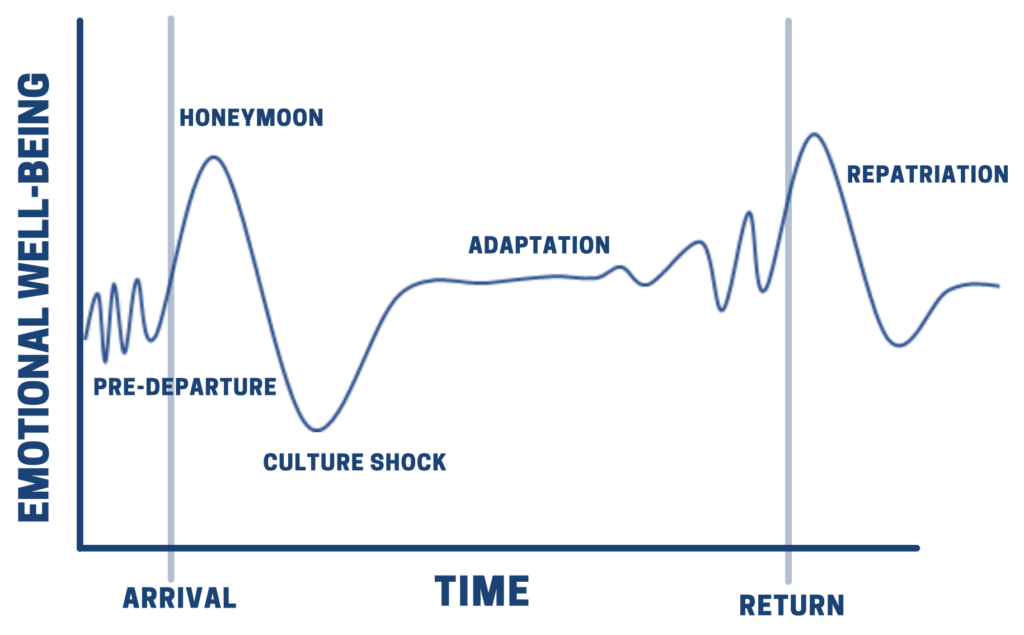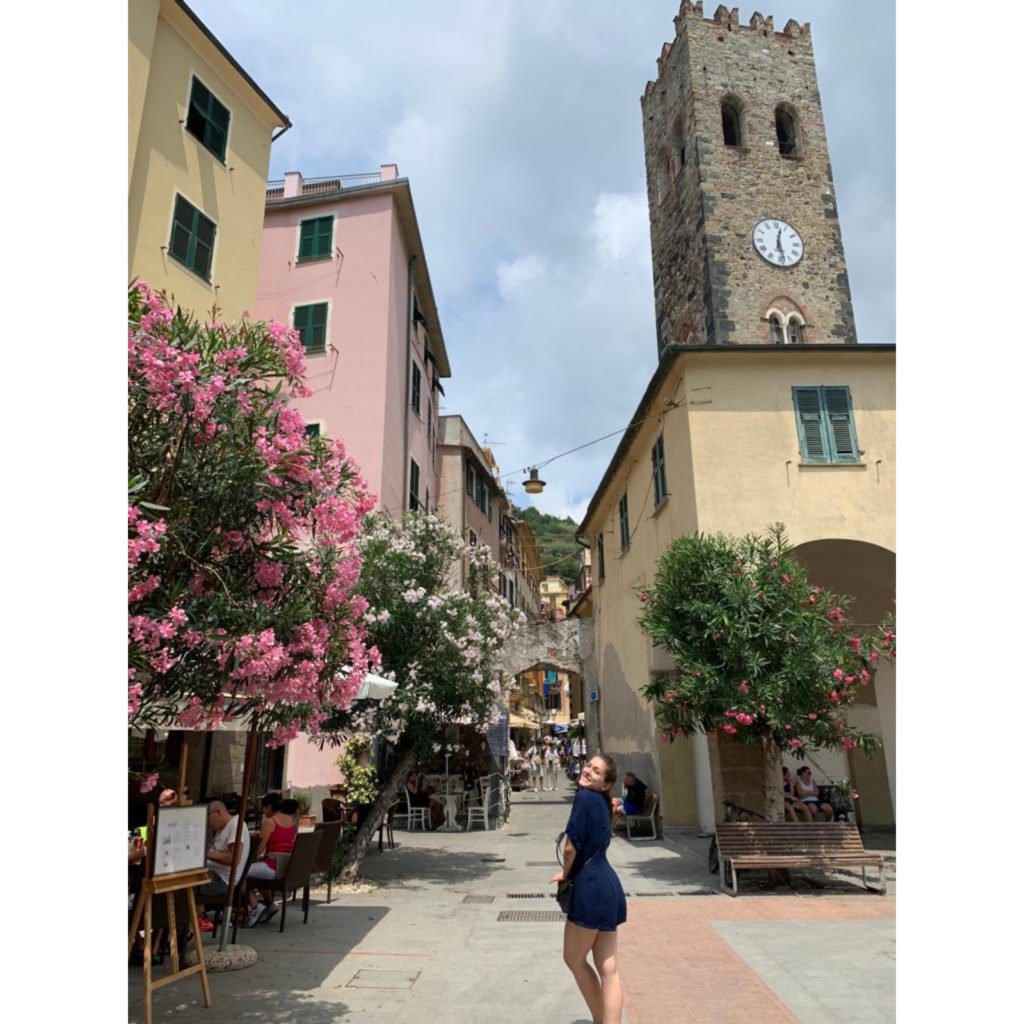Why it’s okay to not feel okay (educational edition!) – The Cultural Transition Cycle
If you’ve found your way to this article, I’m willing to bet that you are here for one of two things:
1. You are preparing yourself for an exciting move abroad, or
2. You’re already abroad and things are harder than you expected.
Either way, take a moment to remember that you are actually doing whatever you once dreamed of. You are embarking on that semester abroad or found a cool work opportunity and it’s the expat life for you. Or maybe you are just very brave and have decided you wanted a big change.
A lot of people talk about changing their life, but you are one of the few that are actually strong enough to do it. So, you know, you go girl.
I studied international business in school, which means I was taught what to expect living and working internationally and how to cope with it. And then I went and actually did it a few times. So even though I am aware of the phases and behavioral changes (yes, there’s actual science behind this!), every time I’ve started over, it’s been hard in a new and unexpected way.
Let's start with the Cultural Transition Cycle

The chart above is a theoretical model that has been tested against real expatriate experiences, meaning anyone who was sent abroad to work. Feel free to Google this to read as many scholarly articles as you please, plus I’ve included some sources at the end.
Something to note, in the above depiction, “Repatriation” is included, which is the return to the home country. You may think this may not apply to you depending on the cool moves you’re making, but you’ll feel the power of this re-adjustment whenever you visit home (more to come on that later!).
01. Pre-Departure
This is probably where you are right now! This is normally a time of excitement paired with anxiety. Proper preparation, including intercultural training, before departure can make a huge difference. Stick with me and I’ll show you how to do all this helpful prep.
Basically, the extreme squiggles in the graph are normal! If you’re already abroad, you might think back to this time as a period of extreme butterflies.
02. Honeymoon
This period is exactly what it sounds like – everything is new and amazing. You’re riding the high. You may be too busy settling in to miss your old life. Try to immerse yourself in the local community. Meet people, learn the language, start or continue old hobbies. This will help reduce the shock that may come next.
03. Culture Shock
The intrigue from the Honeymoon Phase fades away, and you’re not the new one anymore. You might start to miss your old life, or you may be frustrated with the way things are done in your new country. You may be realizing that all the differences you’ve been tolerating are now a real part of your new life (bureaucracy who?). We’ll talk strategies to deal with this, but just remember that you are not alone in feeling this way.
It’s also possible, and this part might bleed into Phase 4, that not only is your surrounding environment challenging, but that you feel like you aren’t fitting in well enough. Maybe you’re being hard on yourself because you feel you should be speaking the language better by now, or that you are totally on your own, but you’ve never felt less independent. Be easy on yourself. I promise you are doing better than you think.
04. Adaptation
Babe, you’re doing great!
At this point, things begin to plateau. You’re doing better! You’ve settled in and life is comfortable, and you’re probably more productive at work or in school. You’re living your new life and things are good.
Take a sec to check in with that graph up there. Notice that even the Adaptation Phase is not totally flat. Some days are going to be really hard, and things will feel really frustrating. But you are equipped to handle this! You’ve already come so far. Bask in the glory of your million mini victories and continue to build upon the foundation you worked so hard on.
05. Repatriation
This part is often forgotten. It can be very challenging to return home after your time abroad. You may experience reverse culture shock due to what you learned and how you changed during your expat years. Some of the techniques used to adjust to being abroad can be used here, as well. Essentially, throwing yourself into hobbies and activities to help re-adjust.
And, maybe you never move back home. That is totally possible. Maybe it’s just visits now. You might notice that once you’ve left, you don’t fit quite right anymore.
First note, fitting in is totally subjective and overrated, but yet it’s an actual instinctual survival tactic that humans have (thanks, evolution), so we cannot outrun these feelings.
Imagine this: You’re a beautiful plant that has been nurtured by yummy foreign food, new ways of thinking, and exciting experiences. What happens when a plant is thriving? It outgrows its pot.
This is probably a good place to start. I will share a lot more information, both educational and emotional. I’m a firm believer that things are easier when you understand why you are feeling things. It can help remind us that we aren’t alone in feeling them (like, there are tons of studies out there proving that this happens all the time and the data has to come from somewhere).
This kind of lifestyle requires sacrifices. It’s not easy. And it’s up to you to decide whether it’s worth it to you. Personally, I can’t imagine my life any other way.
I hope you find what you’re looking for!
Keep checking my website and Instagram (@sunandsombra) for more resources, tips, and shared experiences. Let’s build a community of strong women who are quite literally taking on the world. Are you in?
The expat adjustment cycle: How to minimize culture shock (mercer.com)
Cultural Transition and Adaptation | University of Illinois Counseling Center

